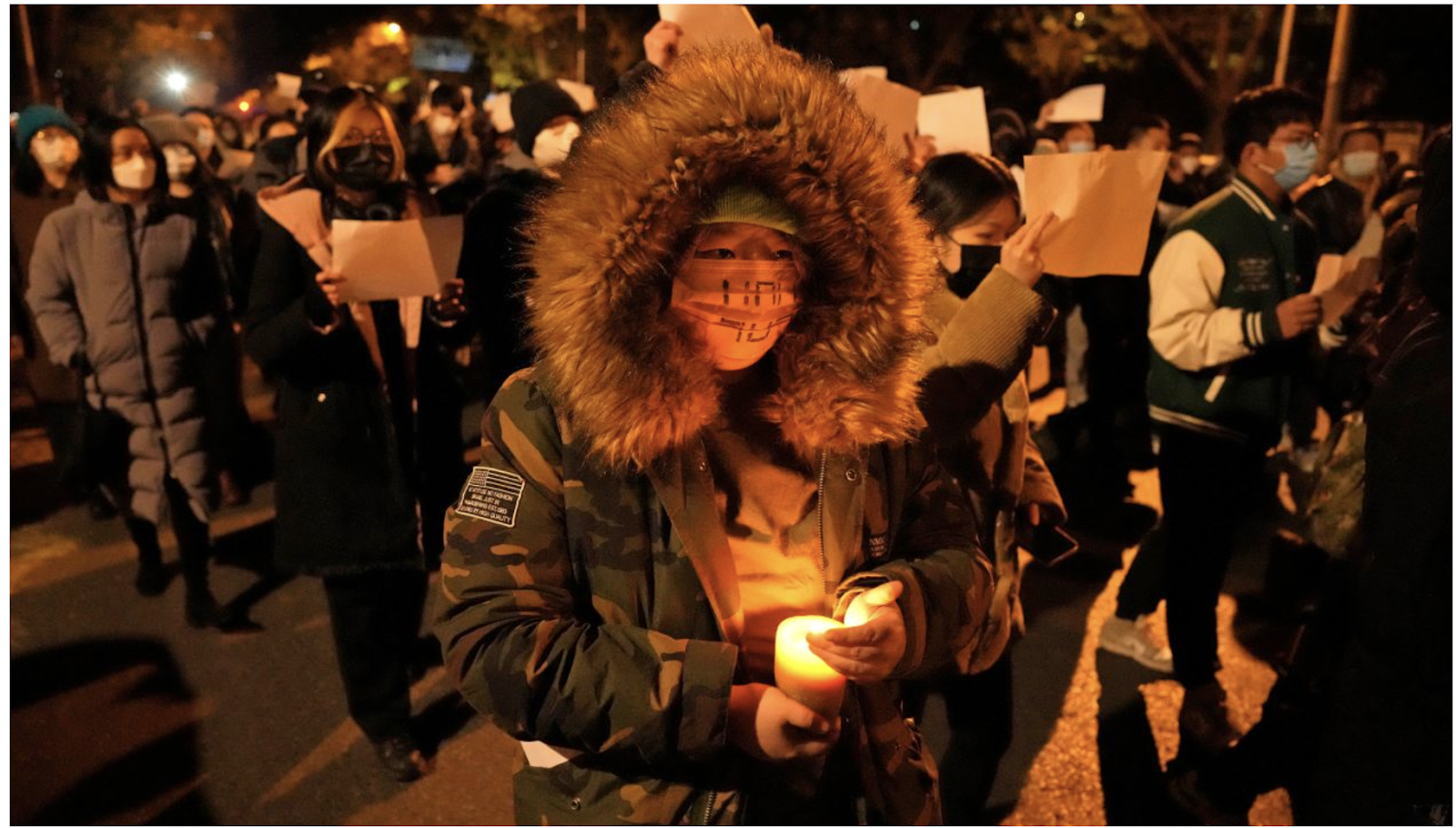UK-China Tensions Rise as BBC Journalist is Arrested During Protests
Chinese police block a street in Shanghai in response to protests. Source: Hector RETAMAL AFP
Nov. 27, 2022, BBC journalist Edward Lawrence was arrested whilst covering protests against coronavirus lockdowns in Shanghai, China.
Video evidence showed him being beaten and kicked by police, as well as him yelling to his colleagues to “call the consulate.” While he was later released, that has not eased the tensions between the UK government and China.
The event comes at a time when world tensions with China are already heightened as the government attempts to silence the intense uproar of many of its citizens who are refusing to comply with lockdowns after more than three years of following the nation’s “Zero-COVID” policy.
The protests first began after a fire in an apartment building killed 10 people and injured nine others in the western region of Xinjiang, with local firefighters being unable to reach the building in a timely manner due to lockdown measures.
The protests quickly expanded to major cities such as Beijing and Shanghai. It is rare for protests of this scale to happen in the highly surveilled authoritarian country, and the government is ramping up closed circuit television (CCTV) countermeasures to try and identify the protesters in response.
In addition to protesting COVID lockdowns, many people are holding up white pieces of paper, a symbolic measure against the tight censorship of the country. This makes the assault and arrest of Lawrence even more poignant as the Chinese government is not only silencing their citizens, but the citizens of other countries as well.
Chinese protesters holding white paper in protest of the country’s tight censorship laws. Source: Ng Han Guan/AP
The British government responded strongly to the arrest, threatening to cut all ties with the country in response to their treatment of Lawrence. While recent prime ministers have tried to maintain diplomacy with China, even through struggles during the Hong Kong protests, Prime Minister Rishi Sunak has taken a more assertive stance.
In a speech he gave on Nov. 28, 2022, Sunak said that the two countries had a “golden era” that was led by Prime Minister David Cameron, but that it was now “over.” Even with this stance, his critics believe that he should more directly confront the Chinese government.
However, Prime Minister Sunak’s current views also match some of the actions he has taken in the past two weeks to cut ties with the Chinese government regarding certain products and utilities on which the UK depends.
On Nov. 16, the British government banned the sale of its largest semiconductor manufacturer, Newport Wafer Fab, to Chinese investors. China is currently the largest producer of semiconductors, and the majority of Western countries rely on China to sell them the products.
Then, on Nov. 24, the British government decided to stop putting Chinese-made cameras in “sensitive sites to the government.”
The most recent move came on Nov. 29, 2022, when the government halted the construction of a new nuclear power plant that was originally contracted out to the China General Nuclear Group (CGN). It will now be built by French company, EGF.
Prime Minister Sunak said that the decision to buy out CGN was not directly connected to national security concerns, but Sunak did mention that Britain’s independence was important.
Given the existing tension between the UK and China prior to the arrest of BBC’s Edward Lawrence, the fact that the British government needed to step in to allow him to do his job only made matters worse.
It remains to be seen whether this arrest will be a tipping point for the British government as it considers further distancing itself from China.


